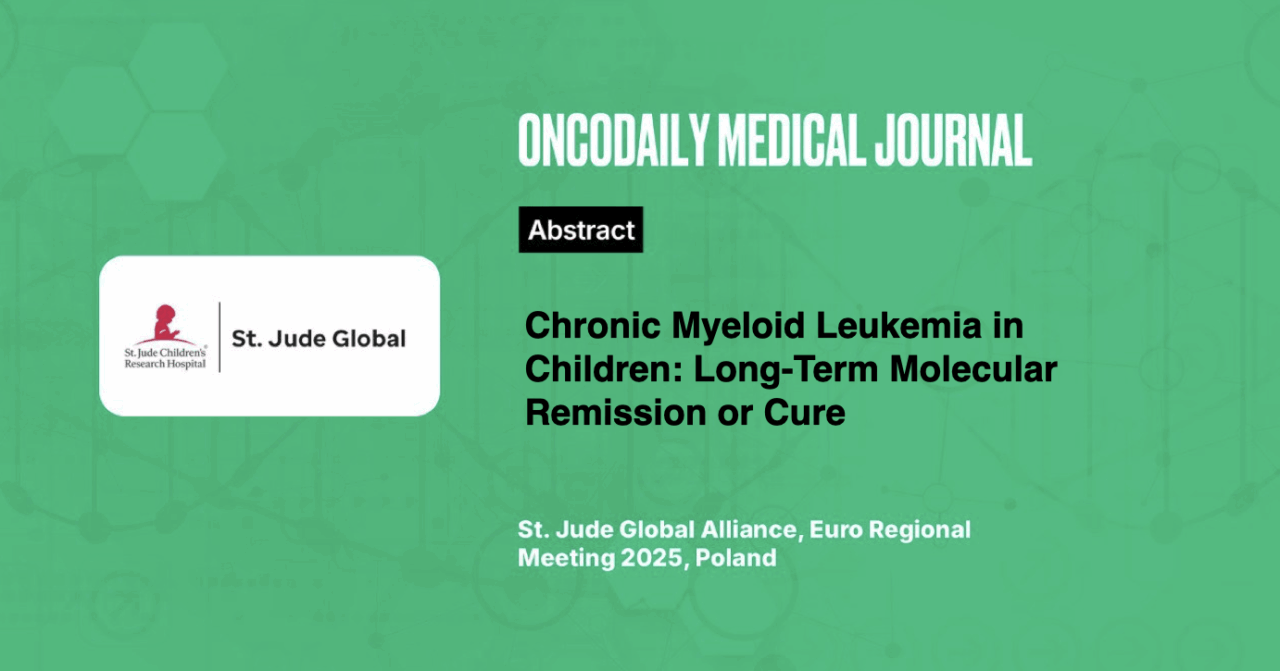Chronic Myeloid Leukemia in Children: Long-Term Molecular Remission or Cure
Abstract
Introduction: Imatinib is the first-line treatment for newly diagnosed pediatric patients with chronic myeloid leukemia (CML). Optimal response to Imatinib therapy is associated with achieving a sustained deep molecular response (DMR), defined as BCR-ABL1/ABL1 ≤ 0.0032% (MR4.5-MR5.0) for at least two years. Recent studies indicate that approximately 50% of adults with CML remain in treatment-free remission (TFR) after Imatinib discontinuation. However, studies assessing Imatinib cessation in pediatric CML patients are limited. The aim of this analysis was to evaluate the efficacy of Imatinib in achieving DMR and to assess the possibility of TFR in children.
Methodology: To assess the response to Imatinib therapy, data were collected from 2008 to 2024 and retrospectively analyzed. The study included 29 BCR-ABL1-positive patients with chronic-phase CML, with a median age at diagnosis of 10.7 years (range: 1.6–17.9 years). Discontinuation criteria required patients to be aged 0-18 years, diagnosed with BCR-ABL1-positive CML in the chronic phase, with no prior TKI resistance necessitating a switch to another agent. Patients had to receive Imatinib for at least three years and maintain stable MR4.5-MR5.0 (≤0.0032%) for a minimum of 24 months, confirmed by at least four qPCR tests performed three months apart.
A reliable qPCR test with results available within two weeks was necessary, along with signed informed consent. Patients were assigned to either an intermittent discontinuation regimen (three weeks on, one week off) (n=3) or a one-time cessation regimen (n=5). Molecular monitoring involved monthly BCR-ABL1 qPCR tests for the first three months, followed by testing every six weeks for the next three months, and then every three months thereafter.
Discontinuation was deemed unsuccessful if two consecutive qPCR tests (four weeks apart) showed transcript levels exceeding major molecular response (MMR, >0.1%), requiring immediate TKI re-initiation according to pediatric CML management guidelines.
Results: The primary endpoint was the cumulative incidence of MMR and DMR, estimated using the Kaplan-Meier method. The five-year cumulative incidence of MMR (BCR-ABL1/ABL1 ≤ 0.1%) was 86.0±7.9%, while the incidence of DMR was 63.9±12.4%. The median follow-up time for Imatinib treatment was 54.0 months (range: 11.0-188.0 months). The median duration of TKI therapy before discontinuation was 78 months (range: 42–139 months), and the median duration of sustained DMR was 41 months (range: 24–72 months).
For Imatinib discontinuation analysis, data were collected from September 2015 to December 2024, enrolling 8 patients who met the discontinuation criteria (5 in the one-time cessation regimen, 3 in the intermittent regimen). Six patients maintained DMR, with a median follow-up of 42 months (range: 12- 110 months). No withdrawal syndrome was reported in any patient. However, 2 out of 5 patients in the one-time cessation group experienced relapse at 4 and 6 months, respectively.
All relapsed pediatric patients responded well to Imatinib re-initiation. Additionally, one patient on the intermittent regimen had to discontinue Imatinib permanently, achieving TFR for 10 months. The median TFR duration in the three patients from the one-time regimen was 108, 51, and 110 months, respectively.
Conclusion: More than 60% of pediatric CML patients achieved DMR within five years of Imatinib therapy. While long-term TKI treatment is effective, it may negatively impact growth, development, and quality of life in children. To address these concerns, clinical trials have explored the feasibility of TKI discontinuation in pediatric patients who have achieved sustained molecular response.
Our findings demonstrate that Imatinib cessation after achieving DMR was successful in more than 50% of cases. Notably, all relapses occurred within 1-6 months, which aligns with findings from adult CML studies. However, we strongly recommend discontinuation only under stringent molecular monitoring. To optimize TFR success rates, randomized studies with a larger cohort are necessary to determine the most effective discontinuation regimen for pediatric CML patients.





